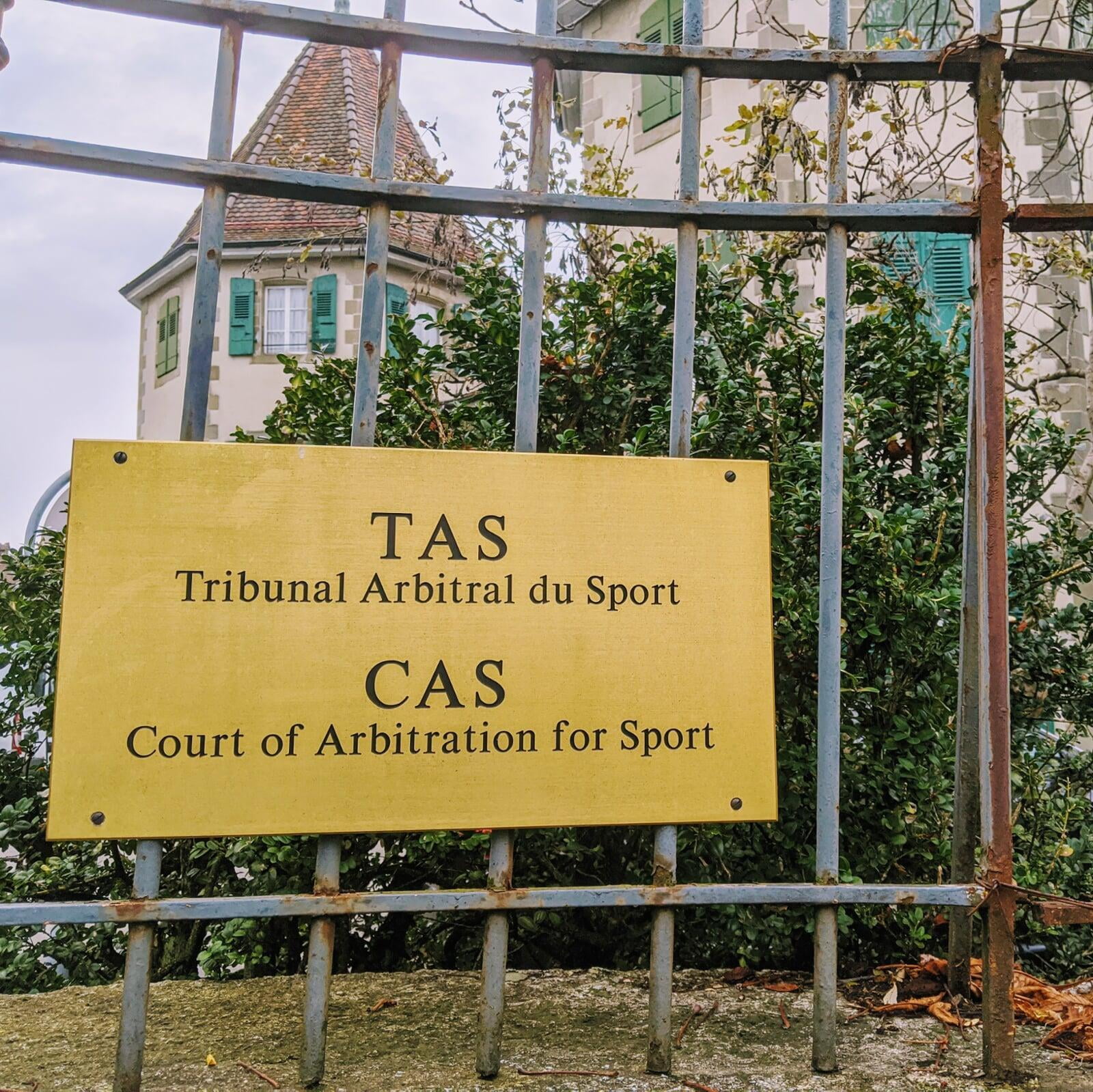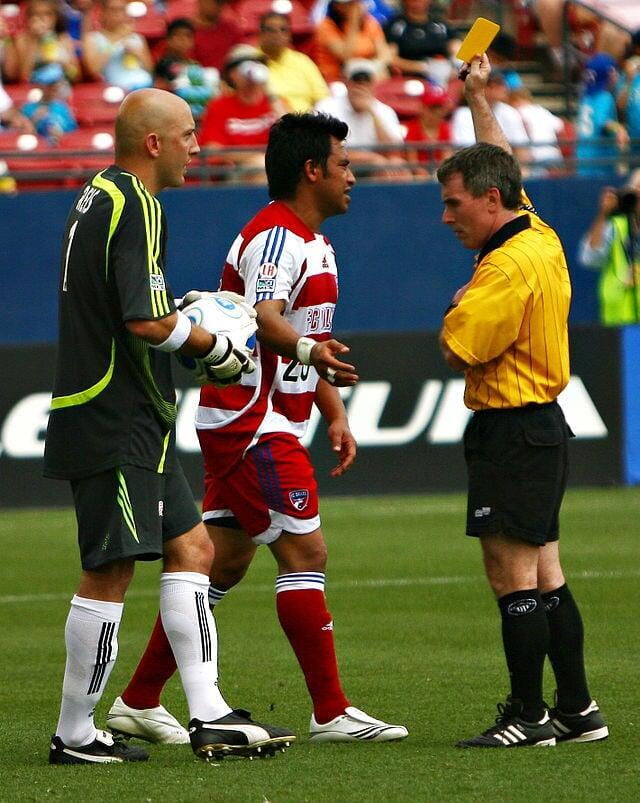Review of the facts of the arbitration award
A Brazilian player was hired on July 25, 2010 by the Qatari Club of AL Khor SC for a period of 3 years. On May 24, 2011, the Club indicated that the player "terminated his services".
The player, contesting this breach, then seized the FIFA Dispute Resolution Chamber which ordered the Club, on October 31, 2013, to pay the Player compensation for unilateral breach of the Contract.
On February 17, 2014, the Club appealed against FIFA's decision to CAS.
After declaring itself competent to hear the dispute, the CAS sought the applicable law. Although the employment contract provided for the application of Qatari law, the Tribunal considers that "The Parties have, at the very least tacitly or indirectly, chosen to abide by the various FIFA regulations, which must be applied first, Swiss law being applicable on a supplementary basis." (§93, p.21).
Validity of a unilateral termination clause
The dispute primarily concerns the interpretation of a clause in the contract. Article 10 states:
"The Club may terminate the contract before its term expires and the first party [the Club] will owe the second party [the Player] an amount equivalent to only two months' salary.".
FIFA considered this article to be abusive because it was preferential to the Club, which Al Khor disputes.
The CAS single judge first recalls that Article 13 of the FIFA Regulations on the Status and Transfer of Players provides that a "contract between a professional player and a club may end only when it expires or by mutual agreement", under the principle of contractual stability.
Thus, except in the presence of a case of just cause, a contract cannot be terminated unilaterally without entailing consequences (payment of compensation and / or sporting sanction).
However, the FIFA Regulations do not provide for the consequences of a contractual provision granting this possibility of unilateral termination without just cause. The CAS will then seek the solution in Swiss law.
While articles 19 and 20 of the Swiss Code of Obligations provide that a contract is void if it is contrary to good morals, the Single Judge considers that "the absence of the term “player” in the body of the article gives rise to such a disproportion between the rights of the two parties that there results a deep feeling of arbitrariness, a value antagonistic to the mores of our society and to the fundamental principles of FIFA".
This possibility of terminating the contract, left to the discretion of the Club, is contrary to CAS case law. Indeed, for the Tribunal, "a system which leaves a worker to the arbitrariness of his employer is […] “immoral” and therefore " (CAS 2005 / A / 983 & 984, §92).
Also, on reading this case law, the Single Judge considers that contractual provisions which would be contrary to the FIFA Rules "must be considered invalid". In this case, "given that article 10 of the Contract grants the possibility for a party to unilaterally terminate the Contract without just cause, the Sole Arbitrator concludes that this provision is in fact contrary to FIFA rules and as such, must be considered invalid and not applicable in the present case".
The Single Judge nevertheless indicates that "if there is no doubt that article 10 of the Contract must be considered invalid and not applicable in the present case, the Sole Arbitrator is nevertheless of the opinion that the Player, in signing the said Contract, should expect this that the Club takes advantage one day and feels authorized to terminate the contract unilaterally by paying two months' salary. In this regard, the Sole Arbitrator also wishes to remind the parties of the general principle according to which any party signing a contract does so, under its own responsibility, and must therefore be attentive to the possible consequences that may arise from such signing." (§150, p.29).
The notion of just cause
The Club considers that in view of the professional incapacity of the player (injury), "he had just cause to unilaterally terminate the contract".
The Referee points out beforehand that the FIFA regulations do not "define what can constitute a just cause for unilaterally terminating the Contract and that it is necessary to refer to the abundant case law of the CAS on this subject".
Taking up the judgment of the CAS of February 16, 2010 (CAS 2009 / A / 1956), the Arbitrator specifies that a "athlete was obliged to do everything necessary to maintain his capacity for work. If he were to breach this obligation, this may constitute "just cause" for unilateral termination, as has already been accepted by an Arbitral Panel in a case where the player had used cocaine. (CAS 2005 / A / 876, p. 13). However, if the player is unable to offer the club his capacity for work due to illness or injury, this does not constitute a breach of an obligation that can be invoked as "just cause" allowing unilateral termination of the contract (CAS 2003 / O / 535, p. 13)".
In this case, the Club terminated the contract following an injury to the Player during a match. Also, "such injuries occurring during a match or during training being part of the daily risks of a player's sporting career, the Player cannot be blamed for having lost his capacity for work when he carried out neither more nor less the activity for which he had been hired"The Club (§130, P.26).
The Judge concluded that if "loss of a player's working capacity is inherent in his professional activity as an athlete", there is no just cause for the unilateral termination of the contract on the part of the Club.
Consequences of unilateral termination of the contract without just cause
The Club considers that the Player has not suffered any damage as a result of the termination of his contract since the Club has covered the medical costs.
The Judge first recalls that Article 17 of the FIFA Regulations provides that when a contract is terminated without just cause, "in all cases, the party who broke the contract is required to pay compensation. Subject to the provisions of Article 20 and Annex 4 concerning training compensation and if nothing is provided for in the contract, compensation for breach of contract is calculated taking into account the law in force in the country concerned, the specificities of the sport and any other objective criteria. These criteria include in particular the remuneration and other benefits due to the player under the current contract and / or the new contract, the remaining duration of the current contract up to five years at most, the costs and expenses incurred or paid by the player. old club (depreciated over the contractual period) if the termination occurs during a protected period".
Since the clause providing for compensation of two months' salary in the event of termination being provided for in Article 10 of the contract which was declared inapplicable in the present case, the Single Judge referred to Swiss law to determine the amount of the indemnity.
According to the established jurisprudence of the CAS "the injured party should be put back in the same position it would have been in had the contract been properly performed" (CAS 2005 / A / 801, §66; CAS 2006 / A / 1061, §15; and CAS 2006 / A / 1062, §22).
In view of these elements, the Judge recognizes that the Player is entitled to claim "the payment of the full remuneration that he could have claimed on the basis of the Contract but also compensation for all the damages that he could have avoided if the Contract had been performed until its natural expiry" (§145, p29).
Of this amount must nevertheless "be deducted from any income that the Player may have obtained between the unilateral termination by the Club of the employment contract on May 24, 2011 and the expiry of said contract on June 30, 2013".








